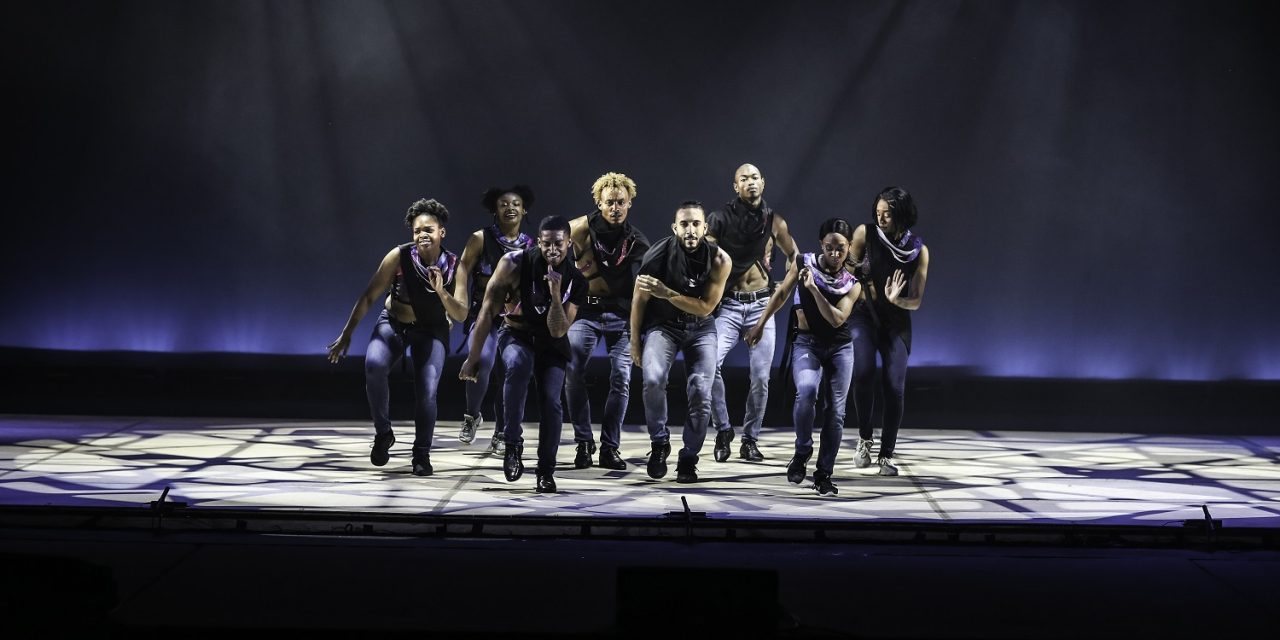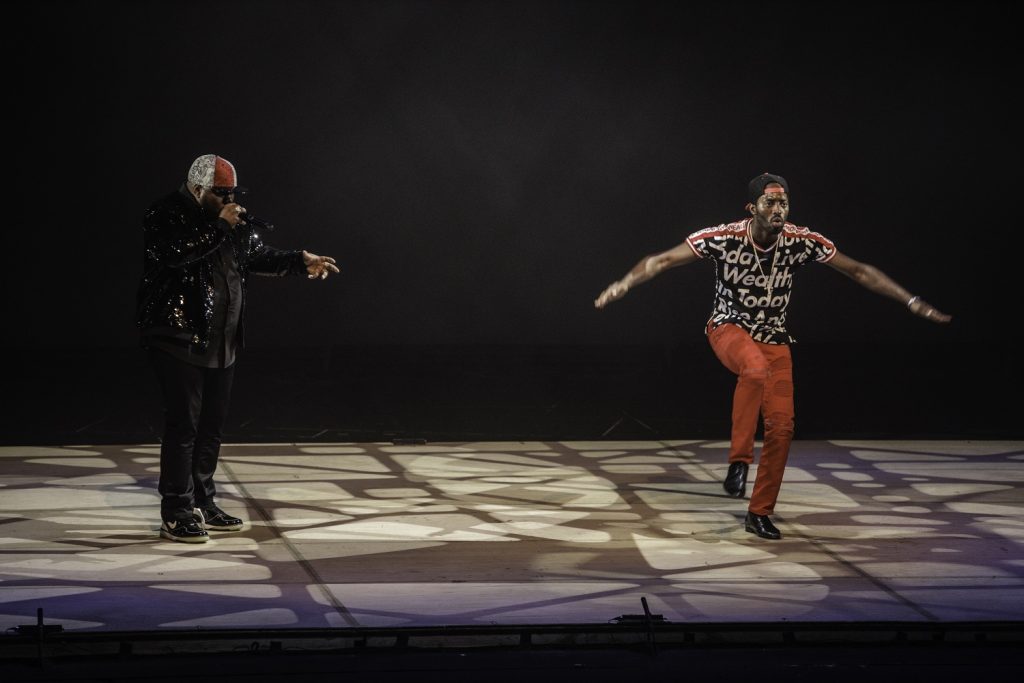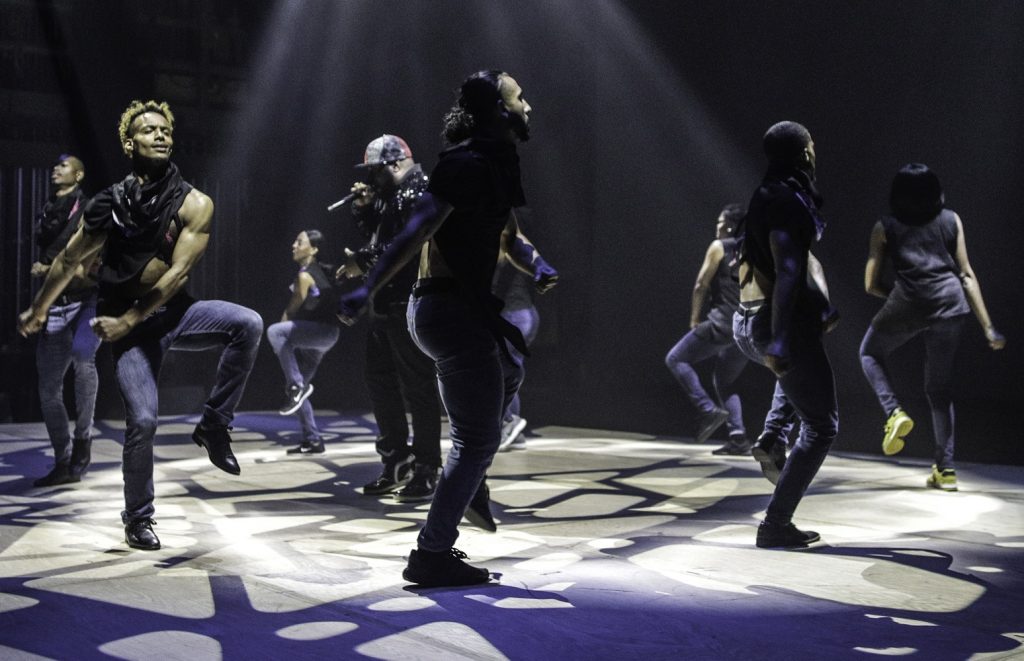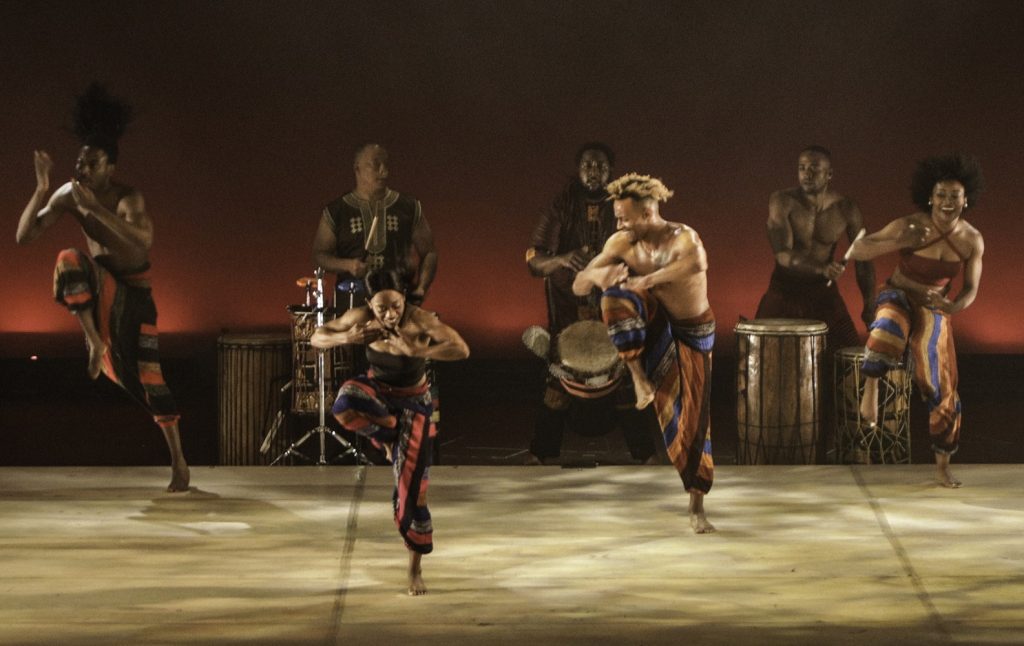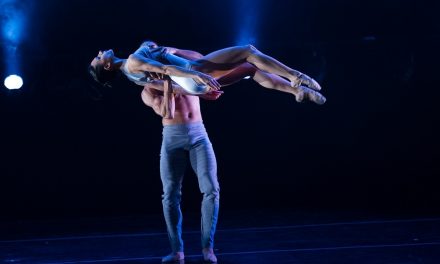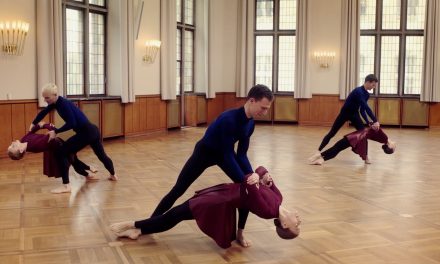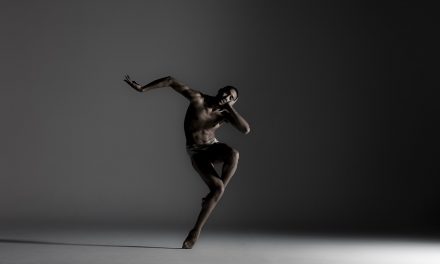The very first professional dance company in the world dedicated to the African tradition of stepping, STEP AFRIKA! is currently celebrating its 25th Anniversary season. On Sunday, February 23, 2020 the company will present the West Coast premiere of its newly commissioned work, Drumfolk at the Younes and Soraya Nazarian Center in Northridge, CA. with very special guest artist American DJ, music producer, keyboardist & beatboxer Taylor McFerrin.
Based in Washington, D.C. and founded in 1994 by Executive Director C. Brian Williams, Step Afrika! is presently traveling with a cast of 30 dancers and musicians and backed by 7 to 10 technical staff. I spoke briefly with Williams over the phone to learn more about Step Afrika! and the new work, Drumfolk.
“The company is bigger than it’s ever been right now.” Williams said. “One of the things that I am most proud about is that in Step Afrika, we provide full-time employment to 15 or 16 who are full-time artists with the company.”
The company is wrapping up its 25th Anniversary season after completing an historic tour of Southern Africa that included Angola, Zambia and South Africa. “It was a tour dream come true.” Williams said before relating that the company had also been touring non-stop throughout the US and around the world.
As mentioned above, Step Afrika! is dedicated to the art of stepping. “Stepping is a folkloric dance, if you will, a percussive dance form created by African American fraternities and sororities.” Williams explained. “Although it is a movement practice, clearly, prior to 1990 the only way to learn stepping was to become a member of these organizations, not only to learn stepping but for the brotherhood, to ask for support or to serve the community. Stepping was a byproduct of the African American fraternity experience.”
Also spelled steppin’, stepping involves clapping, body slapping, vocalizations, and dramatic movements. Williams earned his degree in Management at Howard University in Washington, D.C. and was first introduced to this dance style while pledging to his fraternity, Alpha Phi Alpha Fraternity, Inc. Upon graduating, Williams accepted a job in the small country of Lesotho, an enclaved country within the border of South Africa.
“While there, driving down the street, I saw a small boy on the side of the road making some rhythms with his hands and feet, wearing his gumboots. They call them Wellies in South Africa.” Williams said. It reminded him of the dance that he had learned at the university. It was also a very percussive dance form and he later found out that what the boy was doing was called Gumboot Dance. The experience inspired Williams to create The Step Africa Cultural Festival in Johannesburg, South Africa to bring the two artforms together. This was 1994 and it was the beginning of Step Afrika!
From this almost accidental beginning, Step Afrika! has become one of the largest African dance companies in the world. It is Washington, D.C.’s largest African organizations and only one of two dance companies in that city, touring over 60 different countries around the world.
“Before that experience,” Williams said. “There was no space for this artform in the theater across the country. It was filled with modern, ballet, and tap.” It is, as Williams said, Step Africa! that has introduced the artform to venues like The Soraya, The Music Center and others around the U.S.. “It is really a huge part of our work to introduce an American artform to these venues and therefore to people as a result.”
The company works extensively within schools and Williams said that on the morning of our interview Step Afrika! had performed a matinee for school children. “Community outreach has been at the core of Step Afrika! ever since we got started in 1994.” He said that it’s a part of the work that he really enjoys, and we discussed how important this is for passing the artform on to the next generations.
The company will be performing in two sold out matinees to this age group while performing at The Soraya. ”We love the enthusiasm from the next generation and from the teachers that bring them to these spaces.”
Drumfolk takes the audience back to the 17th century, and features the company’s first presentation of ring shout, a dance and drumming tradition from the country of Angola. It is a 200+ year-old African American dance rarely seen on American stages. I asked Williams to describe ring shout dancing.
“Ring shout is like stepping in that many people would be hesitant to define it as a dance.” He said that when he first learned stepping he did not think of it as dancing, but more like a ritual or a form of entertainment. “Ring shout was really a form of worship in the early African American communities. It is a dance that is primarily rooted in the Alabama, Georgia and South Carolina areas of the country.”
Ring shouts were often held for the dead, a practice seen in New Orleans by traditional bands of carnival revelers. During the time of slavery, Africans often met secretly in the woods at night to perform shouts. The ritual would go on for hours until participants became exhausted and left the circle.
Drumfolk was inspired by the Stono Rebellion of 1739 – an uprising of enslaved Africans from Angola, sometimes called Cato’s Conspiracy or Cato’s Rebellion – which Williams said is most important to African Americans. These slaves used their drums to start a revolt in South Carolina along the Stono River, and although the rebellion was suppressed, approximately 50 Africans lost their lives.
“The Stono Rebellion led to the Negro Act of 1740 and that act, which colonists drafted and made an appeal to the king of England to enact, greatly changed the lives of African Americans in the colonies.” Williams explained. The act made it illegal for enslaved Africans to move abroad, assemble in groups, raise food, earn money, speak their own language, and learn to write. This horrible act remained in effect until 1865.
The Negro Act also made it illegal for Africans to use their drums. “What we found is” Williams said. “once the drum was literally taken away from African people, that the rhythms began to be part of their bodies.” The Africans found ways to produce their music and rhythms using a stamping stick and the shuffling of their feet on the wooden floors of slave houses, and also the slapping of hands against their bodies to create the percussive polyrhythms they once produced on drums. “So, the floor became a drum,” Williams added. ”that’s a very important part of stepping today, and the body became a drum.” This stomping of feet and hands against one’s body is also used in the African American Hambone or Juba dance and in tap dancing. “Stepping is the latest of a long line of African American percussive dance traditions.” Williams said.
Williams is excited to present Drumfolk and to connect this dance artform with audiences around the world, demonstrating where stepping originated and why it was created. He described Drumfolk as dance theater utilizing several styles of dance. They include stepping by some of the best steppers in the world, ring shout, and Juba and Hambone. One will also see traditional African movement exploring how African people may have moved before their drums were taken away by whites. There are also dancers who have found their way into the company who are trained in the more classical contemporary dance styles.
Step Afrika! offers African American forms of dance that have not been seen before by many audiences in this country. At The Soraya, the audience will have the rare opportunity to see dance forms that they may not be familiar with, like stepping and ring shout. “If you’re interested in dance, if you’re interested in percussive dance,” Williams said. “and you’re interested in history or African history in general, this is the show to come to.”
Written by Jeff Slayton for LA Dance Chronicle.
For more information and to purchase tickets, click here.
To visit the Step Afrika! website, click here.
Featured image: Step Afrika! in Drumfolk– Photo by Luis Luque

